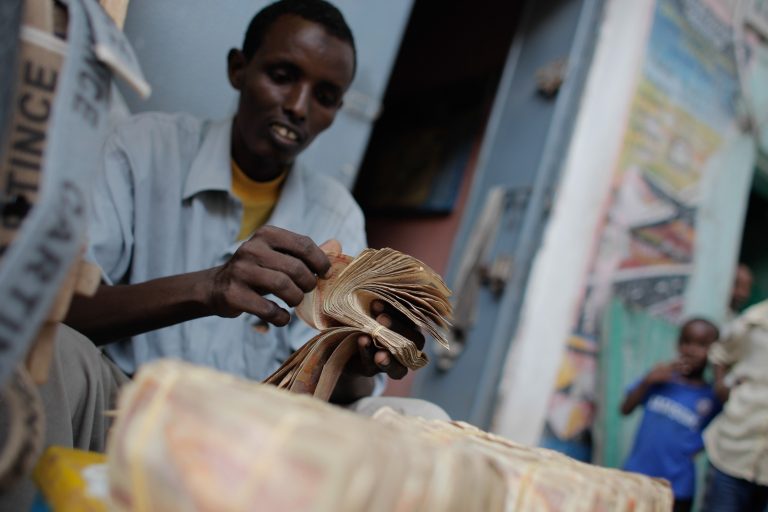This blog was written following a meeting of researchers and practitioners working on Somalia, on 1 April, hosted by the Rift Valley Institute (RVI) and facilitated by the Centre for Humanitarian Change (CHC). Thanks to Daniel Maxwell, Hannah Stogdon, Peter Hailey, Mark Bradbury and Alex de Waal for valuable inputs.
 As the COVID-19 pandemic spreads into the Horn of Africa, and as diaspora communities become affected by lockdowns, layoffs and illness, the remittance lifeline that sustains more than 40% of Somalis is being attenuated. This blog outlines a number of issues related to remittances and Somalia in the light of the COVID-19 pandemic. There has been considerable research on remittances and the role that the Somali diaspora and its financial resources play in times of crisis. Taking stock of this information can provide useful insight into the likely impacts of the imminent drop in remittances.
As the COVID-19 pandemic spreads into the Horn of Africa, and as diaspora communities become affected by lockdowns, layoffs and illness, the remittance lifeline that sustains more than 40% of Somalis is being attenuated. This blog outlines a number of issues related to remittances and Somalia in the light of the COVID-19 pandemic. There has been considerable research on remittances and the role that the Somali diaspora and its financial resources play in times of crisis. Taking stock of this information can provide useful insight into the likely impacts of the imminent drop in remittances.
The COVID-19 pandemic is an event of radical uncertainty: we don’t know the dynamics of the pandemic in different contexts (especially in Africa), nor its wider economic impact. We don’t know if this shock will compound other stresses afflicting Somalis (such as war and food insecurity) or whether the resilience shown by Somali communities in response to those shocks will also serve them well under the pressures of the pandemic.
The Somali diaspora, numbering well over 1 million, is distributed throughout the globe. Some of the largest communities are in the US (where at the time of writing the most cases have been recorded as a result of COVID-19), the UK, Sweden, Netherlands, Germany, and Italy (all of which have extremely severe outbreaks and high – although varying – death rates).
While the Somali diaspora are renowned for their ability to respond to crises in their country of heritage and have been doing so for decades, typically it is they who are insulated from the shocks that their relatives are facing within the Somali territories, whether conflict, drought, floods or economic emergencies (or a combination of these). In this instance, however, the shock of COVID-19 has begun in the diaspora. Ultimately it is likely that both ends of the remittance chain are likely to be affected by the same shock, playing out in similar and different ways. Already, according to an industry source, the volume of remittances has dropped by as much as 50% in certain corridors.
International assistance to the unfolding crisis will always have political dimensions and responses need to use ‘conflict lenses’ and the principle of ‘know your epidemic’. Somalia has a deeply politicised history of aid, most recently brought out once again in relation to the political economy of food assistance. This will play out in the current context in terms of which countries provide assistance and how it is distributed internally.



